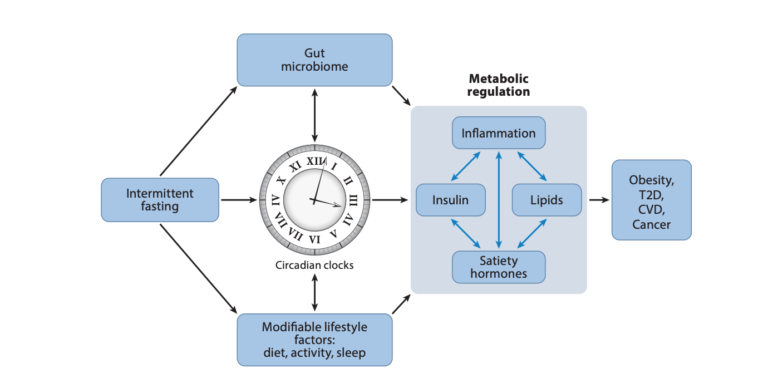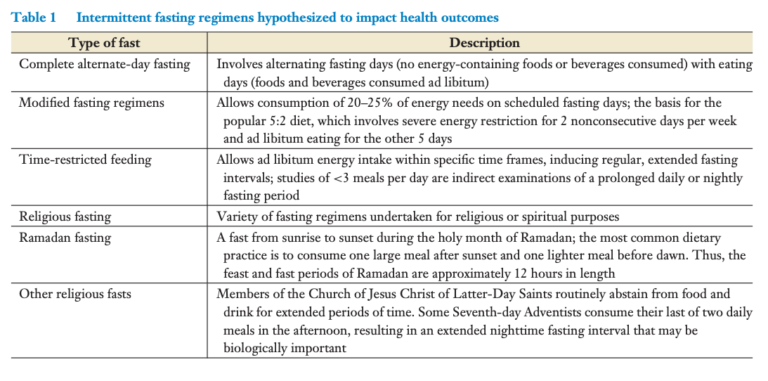Alternate-day fasting was the subject of little human research, though in mouse studies it was associated with reductions in obesity-related body weight, fasting insulin, fasting glucose, plasma cholesterol, and triglyceride levels.
Modified fasting (specifically, the 5:2 diet defined in Table 1) was associated with improvements in fasting insulin, fasting glucose, and circulating LDL, triglycerides and inflammatory markers, but the statistical significance of these results was not assessed.
Time-restricted feeding also showed a variety of improvements in rodent studies (including improvements in cholesterol ratios, body weight, triglycerides, glucose, IL-6 and TNF-alpha), but four human studies showed inconsistent effects on weight and did not assess changes in biomarkers.

Figure 1: Potential mechanisms linking intermittent fasting with obesity, type 2 diabetes (T2D), cardiovascular disease (CVD), and cancer.
The authors summarize the mechanisms by which restricted feeding may induce metabolic improvements. First, restricted feeding may impact circadian biology, supporting the natural variations in insulin secretion and sensitivity throughout the day (insulin sensitivity decreases throughout the day, and nighttime calorie consumption can drive greater elevations in HbA1c and diabetes risk over time). Second, even periodic fasts may impact the gut microbiome with downstream effects toward a variety of organ systems. Finally, intermittent fasting may improve lifestyle behavior by encouraging, for example, decreased energy intake or improved sleep.

